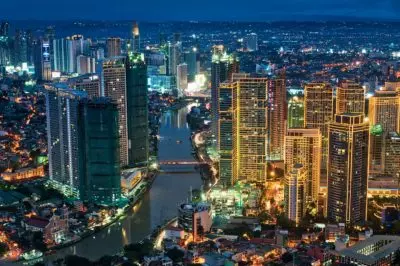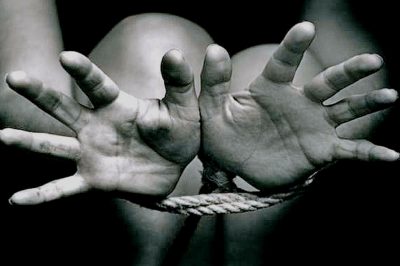 The Taiwan Criminal Investigation Bureau (CIB) recommends extreme caution to Taiwanese nationals who plan to seek employment in the gambling sector of the neighboring Philippines. The CIB cautioned in a press release yesterday that many gambling companies there operate contrary to law, without having obtained the necessary permits from the Philippine authorities.
The Taiwan Criminal Investigation Bureau (CIB) recommends extreme caution to Taiwanese nationals who plan to seek employment in the gambling sector of the neighboring Philippines. The CIB cautioned in a press release yesterday that many gambling companies there operate contrary to law, without having obtained the necessary permits from the Philippine authorities.
Gambling in the country is legal but only within specific areas, the CIB warned. There have been numerous cases where Taiwanese citizens fled to the neighboring archipelagic country in search of employment only to become the hapless victims of unfair and unethical treatment.
There are reported cases of Taiwanese workers being denied payment. Also reported are instances where the workers have suffered physical abuse at the hands of their employers. In the most severe cases, workers involved in the illegal online gambling industry were kidnapped.
The abductors would then attempt to extort the Taiwanese workers’ relatives, demanding them to pay ransom for the victims’ release, the CIB said in yesterday’s press statement.
Three Abducted Taiwanese Workers Rescued over the Past Two Months
 As many as three Taiwanese nationals have been rescued by the CIB’s Manila liaison officer since the beginning of the year. The liaison officer worked jointly with the Philippine officers of the law to rescue the abducted Taiwanese citizens. All three victims were employed in the Philippine gambling sector.
As many as three Taiwanese nationals have been rescued by the CIB’s Manila liaison officer since the beginning of the year. The liaison officer worked jointly with the Philippine officers of the law to rescue the abducted Taiwanese citizens. All three victims were employed in the Philippine gambling sector.
One of the most disconcerting cases of abuse and poor treatment came to light recently when a 23-year-old Taiwanese citizen came forward during a February press conference and related her experiences with her abusive employers before she managed to escape.
Her bosses had connections with POGOs (Philippine Offshore Gaming Operators), the worker said. The woman explained she was mistreated, physically abused, and had her passport taken by her employers who claimed their illicit business was backed by unidentified Philippine government officials.
The victim explained she arrived in the Philippines with a tourist visa but had her passport taken by her employer who abused her mentally and physically. The Taiwanese national was forcefully held in captivity and was prohibited from using her mobile phone. The female worker insisted she wanted to return home to Taiwan but this was impossible since her employers refused to give back her passport, she said.
The CIB Recommends Meticulous Checks of Philippine Employers’ Background
 Senator Risa Hontiveros was also present during the press conference. Hontiveros, who is the chairperson of the Senate Committee on Women, Children, Family Relations and Gender Equality, said there were many crimes tied to the business of Philippine offshore gaming operators, including forceful detention, unlawful recruitment, and even physical harassment in the worst cases.
Senator Risa Hontiveros was also present during the press conference. Hontiveros, who is the chairperson of the Senate Committee on Women, Children, Family Relations and Gender Equality, said there were many crimes tied to the business of Philippine offshore gaming operators, including forceful detention, unlawful recruitment, and even physical harassment in the worst cases.
The Taiwanese CIB also cautioned that some of the affected workers have suffered at the hands of the so-called loan sharks. According to the Bureau, there were twelve such cases of abductions last year as opposed to eleven in 2018. Some of the affected workers have also suffered at the hands of the so-called loan sharks.
The CIB warned Taiwanese citizens to approach employment in the Philippines’ gambling sector with extreme caution, referring to a recent case in which a Taiwanese national was kidnapped and then severely beaten after confronting his illegally operating gambling employer.
The wronged employee managed to call the Taipei Economic and Cultural Office (TECO), explaining his situation and appealing for assistance. The Taiwanese national also said he had his salary withheld by his unscrupulous employer. The CIB warned that Taiwanese citizens who insist on finding employment in the Philippine gambling sector should carefully research the companies that offer them the positions.
They should also read the work contracts meticulously before signing them to ensure they fully understand all the terms. Finally, the Bureau advised workers to make sure the gambling companies process their permits, visas, and other necessary documentation upon their arrival in the Philippines.